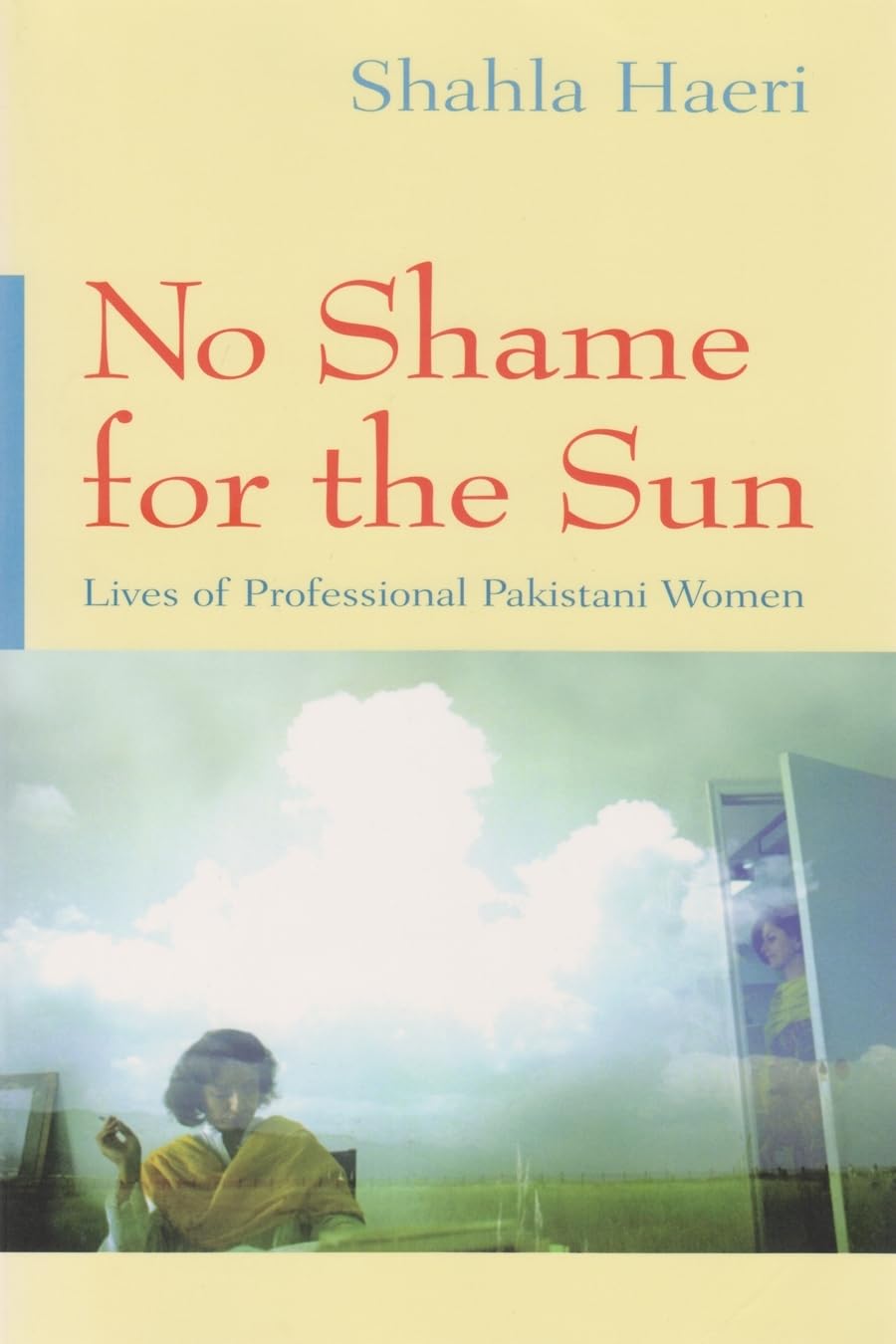Deliver to Ukraine
IFor best experience Get the App


Full description not available
L**T
Impassioned, intelligent voices
Finding it ironic that Westerners are most familiar with the veiled, hidden Muslim woman, Haeri, (Iranian-born director of the Women's Studies Program at BU) introduces six unveiled, professional Pakistani women who talk about their families, childhood, marriages, struggles, politics, religion and work. These in-depth interviews reveal cross-cultural commonalities among women in family and work relationships as well as deep divides between Western and Pakistani attitudes toward women. Several make a distinction between Islam and tradition, saying men interpret religion to reinforce patriarchal culture, a point which is best articulated by Sufi feminist, Nilofar Ahmed. She explains that a lot of accepted knowledge is a matter of interpretation, "and we did not find any female scholars in this line. ...Even the most sincere male scholar with the best of intentions could not look at the law from a woman's point of view."They are all university-educated English speakers and several have done advanced studies abroad. Each describes herself as "different" from other women, by which she means determined, rebellious and independent and, usually, as a child, interested in "boy" activities. Most were encouraged in their education, at least until they got married. Divorce or separation and child custody are discussed at length as well as difficulties (and advantages) of extended family living. Though women worldwide still marry to escape the parental yoke, Western women get to make their own mistakes. These Pakistani women made arranged marriages and three were unhappy. Another, a widow, describes her husband in the same breath and repeatedly as "wonderful" and "difficult," "special" and "bad-tempered." Several found it easier to work and continue education with the support gained from an extended family, several found the demands of in-laws suffocating and demoralizing. Marital separation, leaving aside financial considerations, is difficult for a woman who loses her children (considered to belong to the father), is condemned by family and society, and, if she tries to pursue any kind of independent life, is assumed to be of loose morals.One intriguing woman lives two lives - a government official in Lahore, and a feudal lord in her rural village. In Lahore some men refuse to work for her because of her sex, but in the village feudal position trumps gender. Men and women rely on her for advice, financial aid, arbitration, even spiritual counseling and healing. Born to a second marriage, Ayesha was treated like a boy by a man with no sons. Though proud of this and of her ability to "act like a man," several years after her interview with Haeri, after studying (War Studies) abroad and marrying, she writes Haeri that this posture destroyed "my sensuality, my appreciation of the other sex." Ayesha also has complex dealings with family - legal wrangling over property coupled with a desire for closeness; severe parental restrictions coupled with demanding expectations.Parental restrictions are a common complaint, followed in due course by marital restrictions - brought about by precepts of "izzat" or honor. Woman must be pure and her behavior reflects on her family or husband. "Hence, the threat of women's mobility and autonomy," Haeri explains in her succinct, illuminating introduction. All of these women are politically active (one builds sanitary facilities for the poor, several are involved in education and human rights) and one, Rahila Tiwana, suffered torture in police custody, though she denies reports of sexual assault, saying her family was too well-respected. Rape, Haeri explains, is used to dishonor men, by besmirching the purity of their women.Haeri lets each woman speak in her own voice and speak they do. The interviews come alive with passion, intimacy and intellectual power. Independence comes at the price of loneliness and conflict, even separation from children and family. The author follows each interview with her own comments and conclusions and while her structure is academic, her prose is clear and her opinions insightful. This is a text designed for college use, with copious footnotes, bibliography and index, but it's also a fascinating view into Pakistani culture, history and religious thought for the general reader.
Trustpilot
2 weeks ago
1 day ago